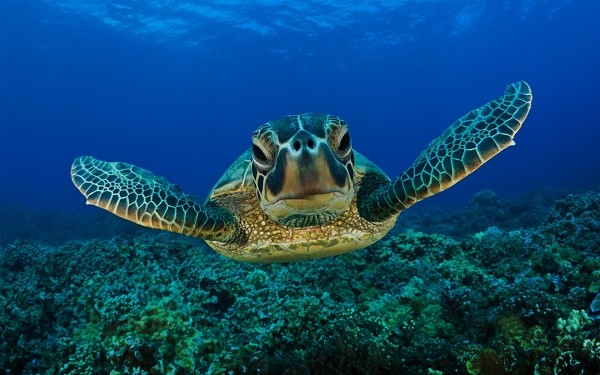Although a petition was filed in 2012 to delist the Green Sea Turtle from the threatened species list, considering the size of the sea turtles' population, the feds decided to keep it under protection.
The National Marine Fisheries Service and U.S. Fish and Wildlife Service denied the petition as the nesting population of the turtles is still small and it is vulnerable to threats of changing climate and rising sea levels, according to the Civil Beat.
The green sea turtles are listed as endangered and are kept under protection in most countries. Thus, it is illegal to hunt, harm or kill them. Many countries, including the US have laws and ordinances in place to protect their nesting areas.
Green sea turtles eat sea grass and algae and feed in the ocean. The adult female Green turtle come back to the beaches where they were born to lay eggs, often migrating hundreds or thousands of miles.
The Association of Hawaiian Civic Clubs that filed the petition cited 2007 data that the 'Hawaii honu' population was growing at 5.7 percent yearly rate for the last three decades. The final review showed a 4.8 percent annual population growth rate.
Still, the Feds found that Hawaii has below 4,000 population of nesting green sea turtles, and more than 95 percent of them nest at French Frigate Shoals in the Northwestern Hawaiian Islands.
The NOAA and the U.S. Fish and Wildlife Service study on sea turtles led them to classify green sea turtles in 11 distinct population categories to protect and nourish the species. The Hawaii Green Sea Turtles are included as one of the 11 categories.
The study found that the population in Florida and Mexico were improving and the species could be categorized as 'threatened' instead of 'endangered'. The case is opposite in case of American Samoa and the Northern Mariana Islands, The Huffington Post reported.
To show the vulnerability of the green turtle population in Hawaii, Patrick Opay, the chief of endangered species branch of NOAA's Fisheries Pacific Islands Regional Office, said, "You have all of your eggs in one basket, so to speak."
The feds' step to keep the 'Hawaii honu' under protection is justifiable, according to Opay.



























